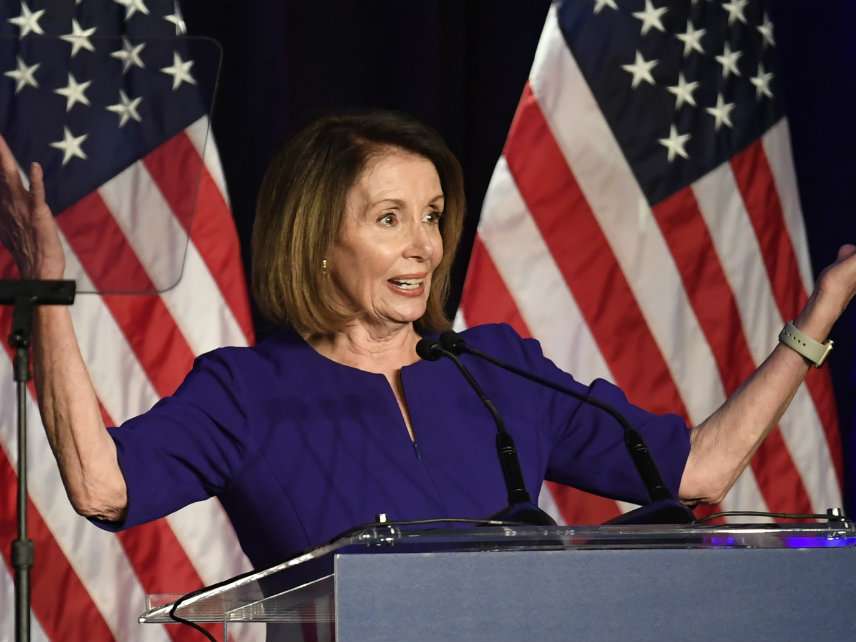Three Cheers for the Return of Divided Government
Democrats will be able to check the worst parts of Trump's presidency in a way Republicans never would, but will otherwise be very limited.

Democrats won the House. Republicans expanded their majority in the Senate.
Votes are still being counted on the West Coast and we won't have the final numbers for the Democrats' new House majority until tomorrow (and possibly longer, depending on recounts), but it looks like the Republicans could end up with 55 of the 100 seats in the Senate.
As election results go, that's about the best possible outcome. Not only that, but it's an outcome that allows, for one night at least, the faintest hope that the crazy train of American politics over the past two years may be slowing to a more sensible pace.
It's been clear for some time now that congressional Republicans were either unwilling or unable—probably both—to be a meaningful check on the Trump administration. Regardless of how you might feel about the Trump's relationship with Russia (or how that relationship might have affected the 2016 election, or the ongoing Mueller investigation), there's no denying that many other aspects of Trump's personal and professional finances deserve more scrutiny than they've received. Beyond that, his expansive and blunt use of of executive power to restrict immigration and impose tariffs deserves oversight from Congress. While Democrats may also be incapable (or unwilling) to grapple with Trump on policy issues, they can be no worse than House Republicans have been.
Meanwhile, the GOP's larger majority in the Senate effectively closes the door to any of the Democrats' more radical policy plans. It means Republicans will be able to confirm additional Trump-appointed judges to the Supreme Court, should another vacancy open up. And it will relieve the pressure on Majority Leader Mitch McConnell (R–Ky.) to abolish the legislative filibuster—a maneuver that would almost surely be a mistake in the long run, just as Democrats have quickly come to regret doing away with the filibuster for judicial nominations.
Indeed, Republicans in the Senate deserve some praise for the role they've played in constraining Trump during his first two years in office. As Ross Douthat noted last week in the pages of The New York Times, the House had been more "pure, uncut MAGA, more reflexive in its defense of a president whose behavior is often indefensible, more poisoned by the worst Trumpist tendencies."
Even with the loss of senators like the late John McCain (R–Ariz.) and the retiring Jeff Flake (R–Ariz.) and Bob Corker (R–Tenn.)—three Republicans who served as the primary check against a Senate GOP sliding towards Trumpism—the slightly larger majority may give McConnell a freer hand in negotiations with the White House.
The outcome may also cause Democrats to reexamine their leftward lurch. Winning the Senate in two or four years will require the party to appeal to red state voters, which should bolster the party's battered moderate wing. And no, it is unfortunately not too early to be talking or thinking about 2020 or 2022.
The run-up to the 2020 presidential election will begin sooner than anyone really wants—and it will be terrible and divisive and bitter. But in the meantime, a split Congress is the best hope for anyone who's not an unrepentent MAGA-head or outright democratic socialist. Whether American politics are chilling out a little bit or the crazies on both sides are now simply cancelling each other out, a stalemate will be a welcome reprieve.
Already, the talking heads on CNN are worrying about complete gridlock in the wake of tonight's election. But the American people appear to have decided that gridlock is preferrable to allowing Trump to run rampant or handing both chambers to the Democrats.
Neither major party can claim to have a mandate in Washington, D.C., right now. That sounds just fine.


Show Comments (133)